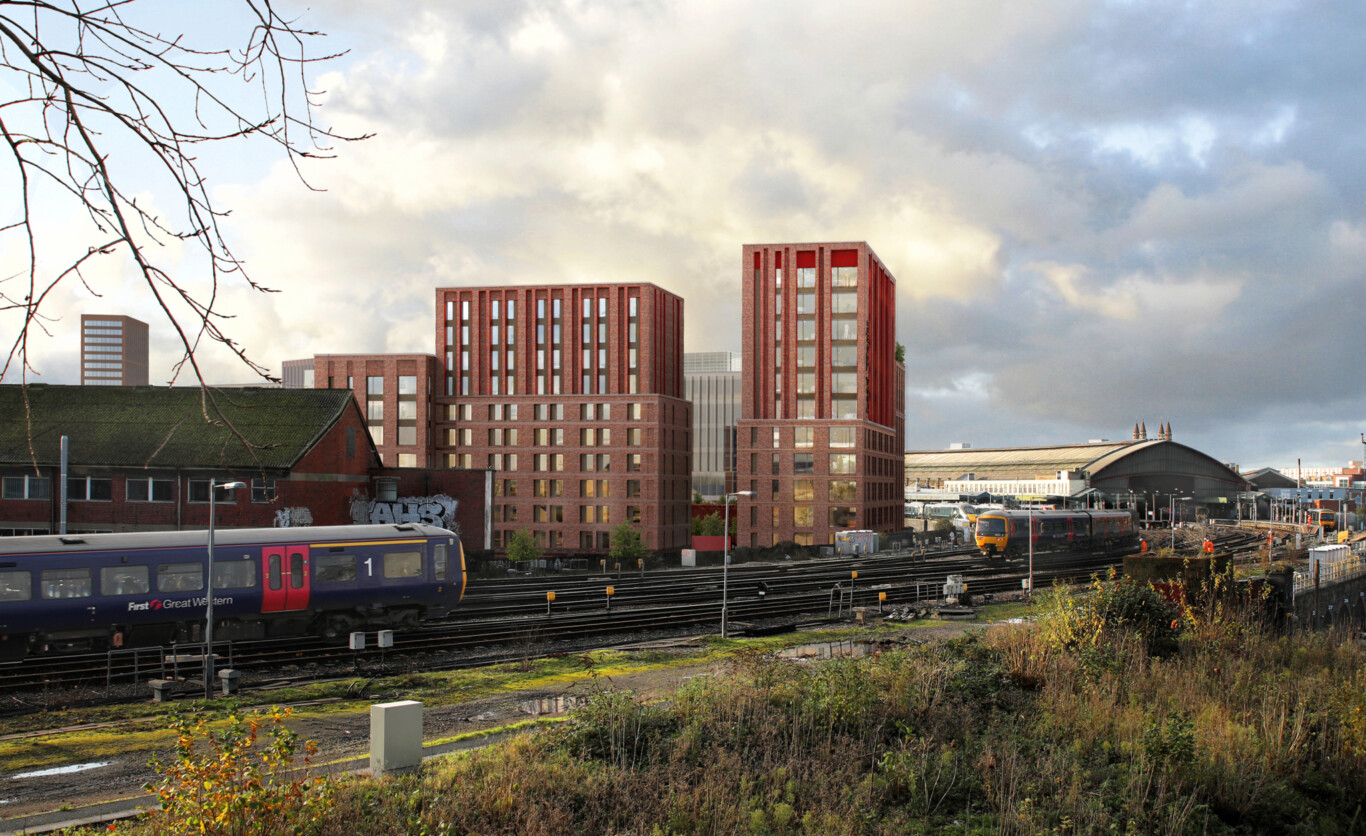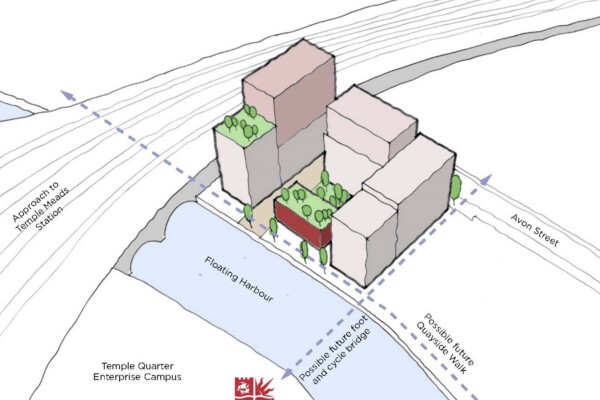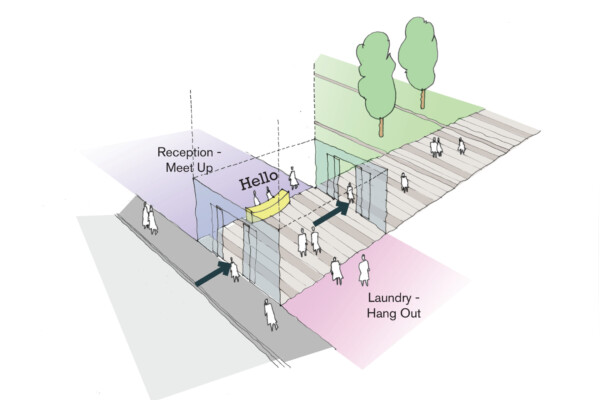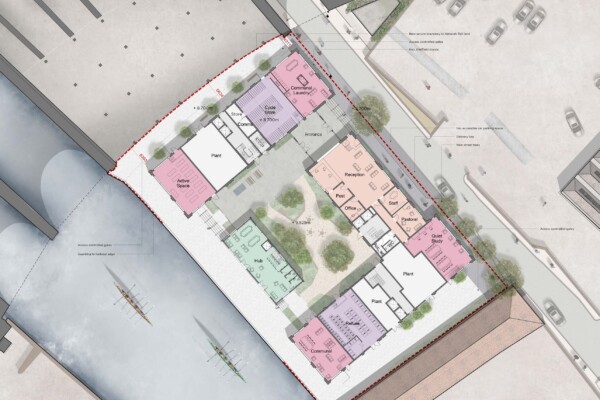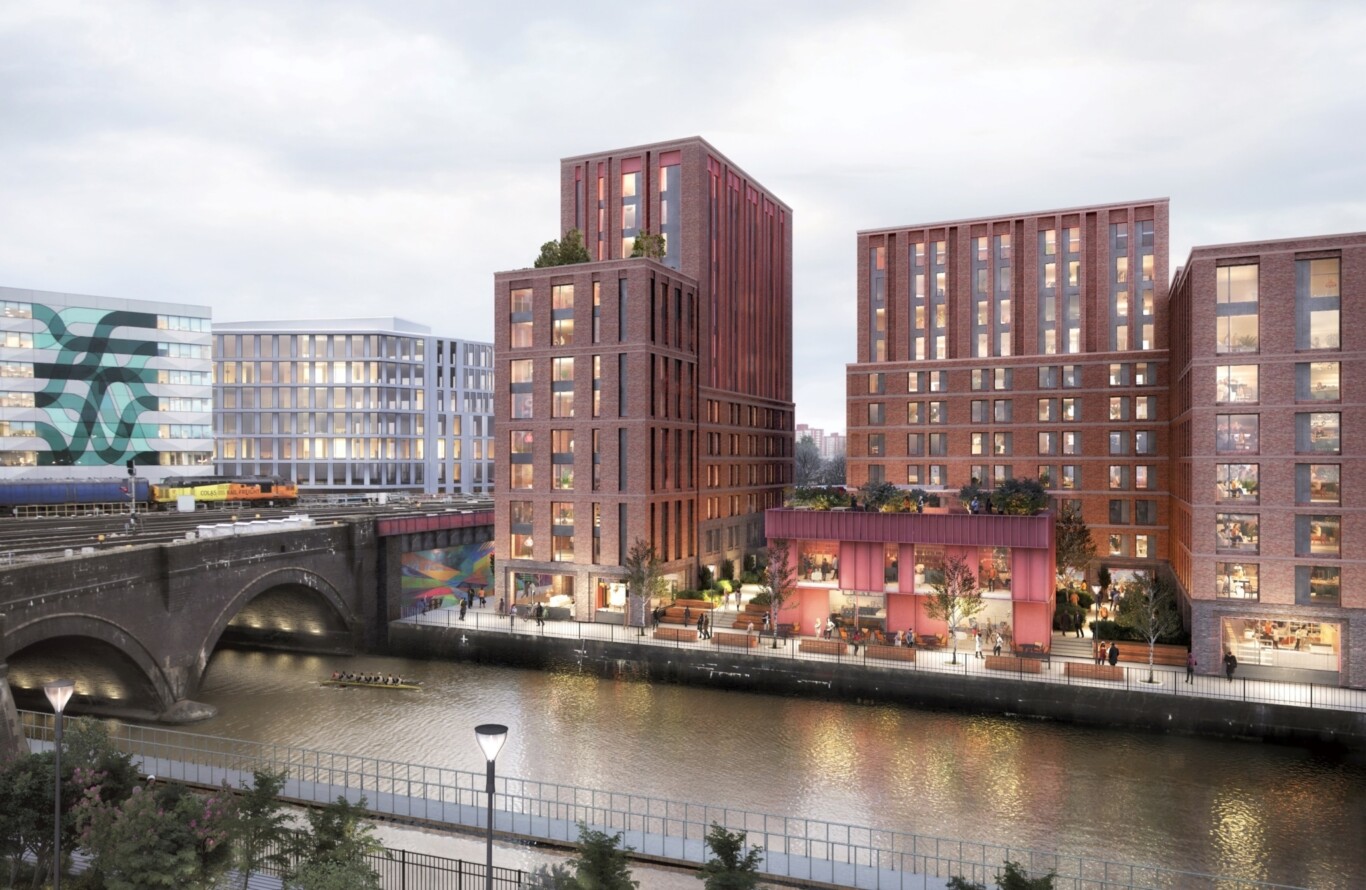
Planning permission approved for student accommodation in Avon Street, Bristol
Chapman Taylor, working with specialist student accommodation developer and operator Tiger Developments Ltd, has secured planning permission for Purpose Built Student Accommodation on a key Bristol site.
Chapman Taylor’s proposals for Avon Street regenerate a brownfield site located on Bristol’s famous Floating Harbour, adjacent to both the forthcoming Bristol University Temple Quarter Enterprise Campus and to Bristol Temple Meads station. The proposals will provide sector-leading student accommodation, with 471 bedrooms across three buildings arranged around an open courtyard, with a standalone two-storey mixed-use Hub building to the harbour side.
The concept was developed in consultation with the University of Bristol to ensure that the needs of students were uppermost in the design's evolution. Our design promotes a connection with the outdoors, to facilitate an increased sense of wellbeing for residents. Working with Bristol-based landscape architect Churchman Thornhill Finch, we designed the scheme around a landscaped courtyard, with the waterside communal Hub at its centre. The courtyard is designed to be active with amenity spaces, with the Hub and block entrances accessed from it, but also to provide pockets of tranquillity for contemplation.
The buildings will be set back from the street, harbour and railway to provide a much-improved public realm and enhanced connectivity. This also allows for the future incorporation of the site into a possible harbour walkway allowing enjoyment of the currently inaccessible harbour. The development will have an active ground floor facing the street, courtyard and the water, including a highly active reception area to enhance security for residents and visitors, with views from the street through to the harbour.
The distinctive architecture of the buildings, which references the area's industrial past, and the nearby historic railway buildings and structures, will provide a readily identifiable landmark for passengers travelling in and out of Temple Meads station. The buildings will vary from eight to 13 storeys in height, with a standalone two-storey mixed-use hub to the harbour side.
Construction of the scheme is expected to start at the beginning of 2023 with completion targeted for the summer of 2024 in time for the Autumn 2024 intake of students.
The concept was developed in consultation with the University of Bristol to ensure that the needs of students were uppermost in the design's evolution. Our design promotes a connection with the outdoors, to facilitate an increased sense of wellbeing for residents. Working with Bristol-based landscape architect Churchman Thornhill Finch, we designed the scheme around a landscaped courtyard, with the waterside communal Hub at its centre. The courtyard is designed to be active with amenity spaces, with the Hub and block entrances accessed from it, but also to provide pockets of tranquillity for contemplation.
The buildings will be set back from the street, harbour and railway to provide a much-improved public realm and enhanced connectivity. This also allows for the future incorporation of the site into a possible harbour walkway allowing enjoyment of the currently inaccessible harbour. The development will have an active ground floor facing the street, courtyard and the water, including a highly active reception area to enhance security for residents and visitors, with views from the street through to the harbour.
The distinctive architecture of the buildings, which references the area's industrial past, and the nearby historic railway buildings and structures, will provide a readily identifiable landmark for passengers travelling in and out of Temple Meads station. The buildings will vary from eight to 13 storeys in height, with a standalone two-storey mixed-use hub to the harbour side.
Construction of the scheme is expected to start at the beginning of 2023 with completion targeted for the summer of 2024 in time for the Autumn 2024 intake of students.
Construction of the scheme is expected to start in July of 2023 with completion targeted for the summer of 2025 in time for the Autumn 2025 intake of students.
